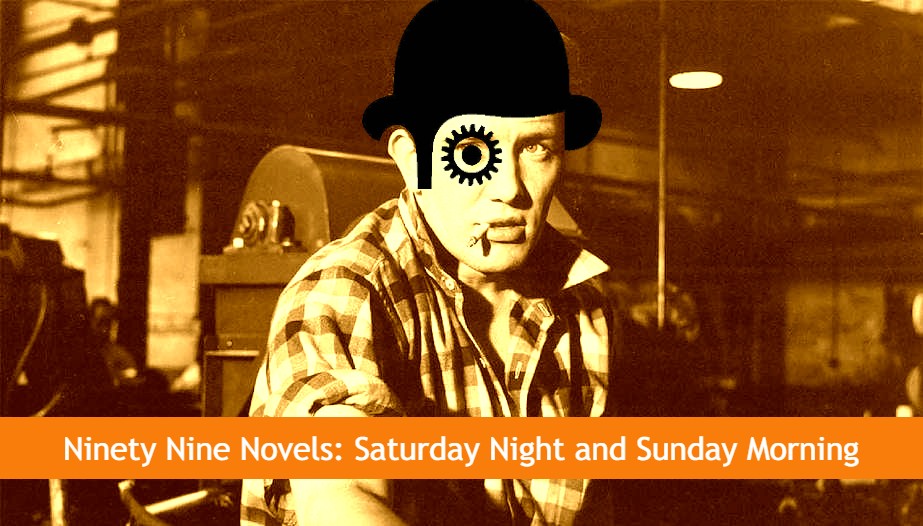An interactive fiction game exploring transhumanism, poverty, and whether the Broadmarsh Centre will ever get finished.
It’s 2123 and life has got a bit rubbish. Humans are unemployed because AI does everything for them. This means there isn’t much to do other than sit inside and watch telly; Fortunately, there’s l-o-a-d-s of channels. Lee Vitaht is a youth from Tip Valley, Nottingham, a slum area where the unemployed are forced to live until society can find a use for them. One day he enters a competition to appear on the Reality TV programme Live Island with the chance to win immortality. Lee Vitaht would love to live forever so he can finally witness Forest win the Prem and possibly see the Broadmarsh Centre flattened. But as Reality TV host Android Marr explains, ‘we work in immortality, not miracles.’
AI Up Mi Duck is an interactive fiction game that can be downloaded from itch.io. It explores the impact of technology on our lives and issues of transhumanism – the idea that we can somehow become untethered from our flesh and live forever. Nobody is quite sure exactly what transhumanism means or how it will work, but it’s got a lot of people interested and generated a load of cults, with Ray Kurzweil, author of The Age of Spiritual Machines (2000), the alpha prophet.
The hope is that emerging technologies such as genetic engineering, AI, cryonics, and nanotechnology can somehow help humans stop ageing and relegate death as a 20th century inconvenience. One of the most extreme versions of this ideal is that our consciousness can be downloaded and rebooted into some kind of external mainframe computer. Let’s just hope the broadband connection is stronger than my Giff Gaff connection. But consciousness is not a tangible thing like a foot or finger and so whether you can download something that is difficult to define or locate is a bit of a challenge.
To help me research the game, I read Matt O’Connell’s To be a Machine (2017), and discovered that the idea of connecting ourselves to a wider network may not be that farfetched. The body, after all, is a series of electrical circuits. If this could be emulated somehow, it would completely redefine what it means to be human. For those who can’t wait for such innovations, fear not. You can get your frozen corpse stored in a massive cryogenic warehouse in the hope that one day medicine and technology will be able to reanimate the brain, thereby providing a second chance at life. Then there’s the hubris of the ‘life hack’ brigade who think that a strict diet and exercise will help prolong life. If getting up at 4a.m every day to do 1,000 press-ups while binging on raw food is the key to eternal life, it’s a no from me. It’s the quality rather than the quantity of life that matters.
In writing this game with animation students from Confetti, one thing became abundantly clear: I don’t want to live forever. It would be tedious. There’s only so many times you can get Homer Simpson socks for Christmas or watch fireworks over Trent Bridge before the novelty wears off. There’s something humbling about coming to terms with your mortality that helps you appreciate your allotted three score years and ten.
We live in precarious times and doom and gloom is everywhere. But nothing depresses me more than a social media post warning ‘watch till the end’. This is the end of civilisation, at least as I know it. The immediate gratification of digital has eroded our attention spans so much that even a fifteen second Tik Tok is too long. If you’re still reading this article, btw, well done. Your head must be absolutely throbbing.
The reason I find this future so alarming is because I have become an alien in my own life – a fate that awaits us all. I’m an analogue kid who grew up in a world of three TV channels, where people talked to each other rather than ‘liked’ each other, and the closest thing to the internet was teletext. The world – as wonderful as it may be – is completely unrecognisable. Imagine that feeling for eternity.
In some respects, we’ve entered a kind of Digital Dark Ages. We no longer know what ‘truth’ is, who is observing us, or what sophisticated algorithms are doing with our data. We now have two lives – a ‘real’ physical life and an online life. Is it any wonder so many people are anxious or suffering from mental health issues when our very being is split in two?
We’re digital pioneers in a Brave New World where AI will radically transform every aspect of life as we know it. This change will be as profound as the invention of fire, the wheel, and the industrial revolution. But future generations will look back on us as digital illiterates, who *scoff* communicated via a phone. Lol.
I may not want to live forever, but I do admire people who will do whatever they can to squeeze out a bit more juice. In this, the transhumanism movement is a symbol of optimism (or delusion) and may very well represent the next stage of evolution. Good luck to them.
Ai Up Mi Duck is free to download but a donation would be nice – just so I can eat. https://thartamardarse.itch.io/ai-up-mi-duck

